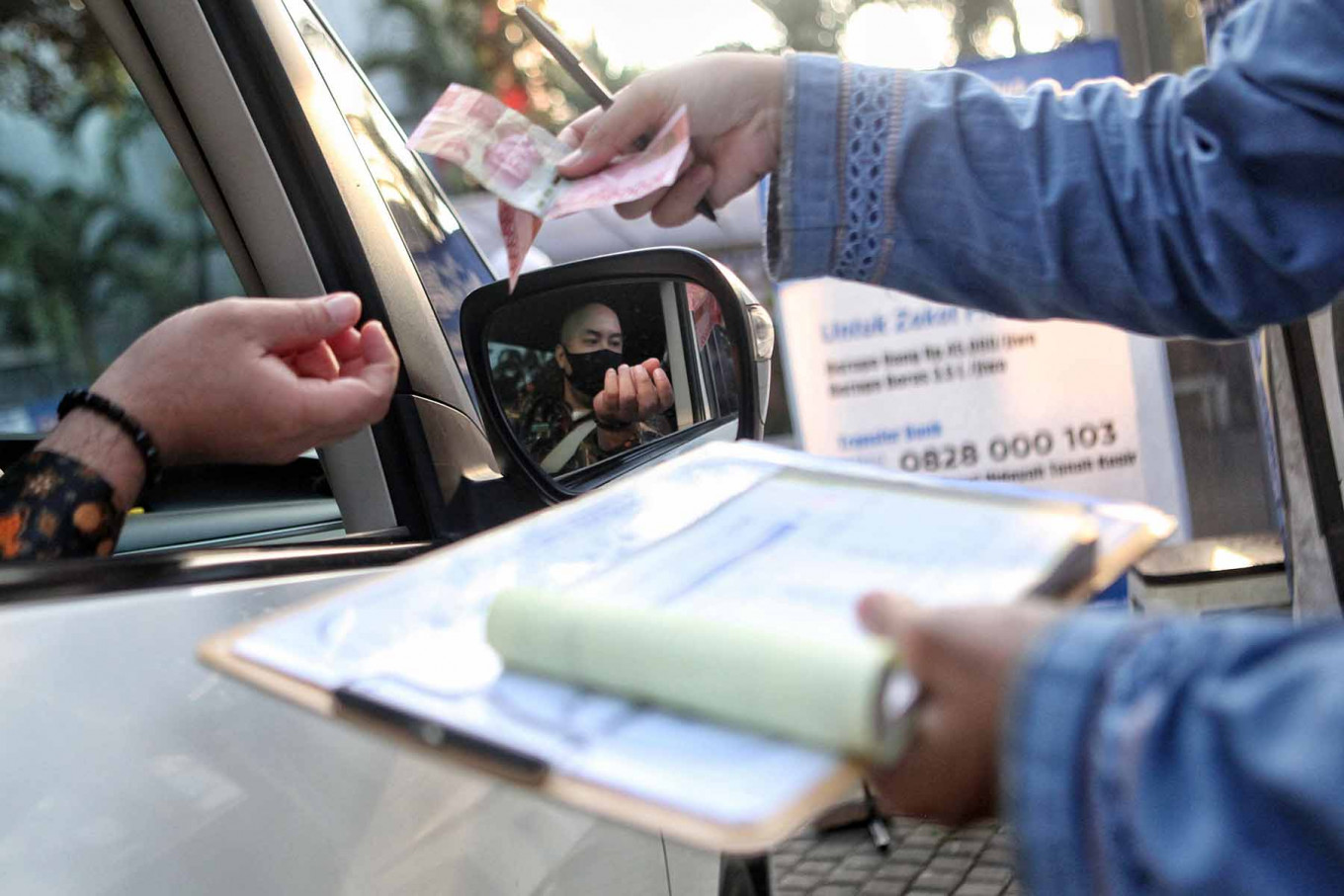Popular Reads
Top Results
Can't find what you're looking for?
View all search resultsPopular Reads
Top Results
Can't find what you're looking for?
View all search resultsCould going religious spur extra financing for SDGs?
Islamic finance principles and tools are very much aligned with SDG values; avoiding excessive speculations, promoting risk-sharing and limiting debt to the value of assets.
Change text size
Gift Premium Articles
to Anyone
I
ndonesia is primarily a proud faith-based community that values charitable giving to the underprivileged in the name of compassion and compliance with religious teachings. The big question is: what if religious donations were dedicated toward accelerating the achievement of the Sustainable Development Goals (SDGs) in Indonesia?
Indeed, harnessing religious financing mechanisms is one way of closing the SDGs financing gap. Like many countries, Indonesia struggles to close this gap, where millions of dollars are missing on an annual basis – at least US$1 trillion prior to the pandemic (SDGs Roadmap, 2019). Bringing religious funds as integrated solutions is a viable solution given how central religion is to the approximately 270 million people in the country.
Indonesia’s dominant faith is Islam, and its diverse community has played a breakthrough role in channeling some of its charitable funds such as almsgiving zakat and waqf (endowment) to SDG initiatives. Islamic financing has also tapped into the global and domestic financial market to raise much-needed funds for SDGs through the issuance of sukuk (Islamic bonds).
But other religion-based financing schemes such as Christian Perpuluhan and Kolekte, Hindu Punia and Buddha Dana, have yet to be mainstreamed into SDG initiatives. Also, to make it more strategic, those instruments have to be included in Indonesia’s Integrated National Financing Framework (INFF), which provides a strategy for financing national priorities.
Eleven years ago in Social Work Journal, Abidin’s study revealed the estimated collection of all social religious funds was worth a minimum of Rp 147.5 trillion (US$10 billion). With the trend continuing to grow over the years, its collection now is very likely to be increased.
Despite the limited estimates, these religious funds offer big potential. In Indonesia, there has been an increase of 41.15 percent in beneficiaries from philanthropic activities, which previously benefited 91.7 million people in 2018-2020. Around 84.9 percent of philanthropic organizations adopted SDGs as their program reference, where significant contributions were made to the health sector, education and the reduction of inequality (Filantropi Indonesia, 2021).
A few challenges persist (e.g. data management, productive deployment, programmatic planning, personal preferences and trust issues), which hinder society from channeling funds through institutions. Trust reduces the cost of funds through effectiveness, efficiency, credibility and reputation, boosting institutions’ performance to maximize utilization to the beneficiaries.
Islamic finance principles and tools are very much aligned with SDG values, including avoiding excessive speculations, promoting risk-sharing and limiting debt to the value of assets. Interestingly, these resonate well with Buddhism’s approach. It philosophically encourages good motivation when investing, which must not be excessive or greedy.
In the same fashion, similar values exist in the Christian faith. Churches avoid financing tobacco, alcohol and gambling. These religions consider the interconnection between human beings and the environment, which is starkly visible in global problems such as climate change.
Living in harmony and prosperity, including with the environment is popular in Balinese Hindu values as Tri Hita Karana. In Bali, Muslims, Christians and Hindus join hands in the philanthropic act of giving to one another in the tradition of ngejot.
Aligning religious funds with SDGs is very promising. In the United States, religion annually contributes about $1.2 trillion of socioeconomic value to the US economy (Religious Freedom & Business Foundation, 2016). This exceeds the global annual revenues of the world’s top 10 tech companies, including Apple, Amazon and Google (World Economic Forum, 2017).
Findings from the United Kingdom, the so-called Islamic finance hub for the western world, Oxford Faith-Aligned Impact Finance (Oxfaif) recorded that the religious fund is worth a total of $5 trillion worldwide; most of the capital held by Islamic finance (80 percent), followed by $300 billion in Dharmic capital from Hinduism, Sikhism and other Dharmic faiths. Christian faith-based funds are worth $260 billion, while their Jewish counterparts hold $16 billion, the Financial Times reported.
A shift from mobilizing religious funds on an ad hoc basis and for one-off purposes toward investment in environment, social and governance (ESG) contributes to greater social harmony and equality, protecting the environment and ensuring economic prosperity. The deliberate intentionality in impact investing aims to generate a positive ESG impact by setting outcome objectives and measuring their achievement (UNDP & IsDB, 2017).
The intentionality concept is rooted in a popular hadith saying ‘innamal a’malu binniyat’ (deeds depend on the intention). It is to direct the decisions to achieve the 2030 Agenda by helping to narrow the wealth and well-being gap between people.
More importantly, there is a rise in awareness of ethical investing. An HSBC Sustainable Financing and Investing Survey in 2019 found 62 percent of investors stated that environmental and social issues were important. This implies that people are aware of transparency and impact measurement of the money they invested in.
Indonesia has several times been noted to be the most generous country in the world, with a score of 68 percent (World Giving Report, 2022). The country has been listed in the top 10 since 2016 and has made many notable signs of progress.
Despite the pandemic, the total assets of Islamic finance (excluding Sharia-compliant stock) have amounted to Rp 2.38 trillion, a 15 percent increase from the previous year (OJK, 2022). Interestingly, the collection of zakat, infaq, sadaqah (religious alms) and other social religious funds in 2021 exceeded the target with a 33 percent hike compared with those in 2020 (BAZNAS, 2021).
Herein, the INFF process provides an opportunity to strengthen planning and overcome challenges in financing sustainable development. Indonesia is doing so by bringing in something close to its heart: religion. Counting on the role of faith-based institutions allows for religion to be the force of change, which sits well with the Indonesian public’ preferences.
A large task awaits: strengthening synergy within the faith-based finance ecosystem would entail fostering the harmonization of regulations, incentivizing donors, enhancing the monitoring system and simplifying the licensing system for fundraising. The journey that Indonesia is now embarking on is undeniably exciting.
As with most things in life, we just need a little faith.
***
Greget Kalla Buana is a UNDP Islamic finance specialist. Anisa Indah Pratiwi is a UNDP SDG finance specialist. The views expressed are their own.










